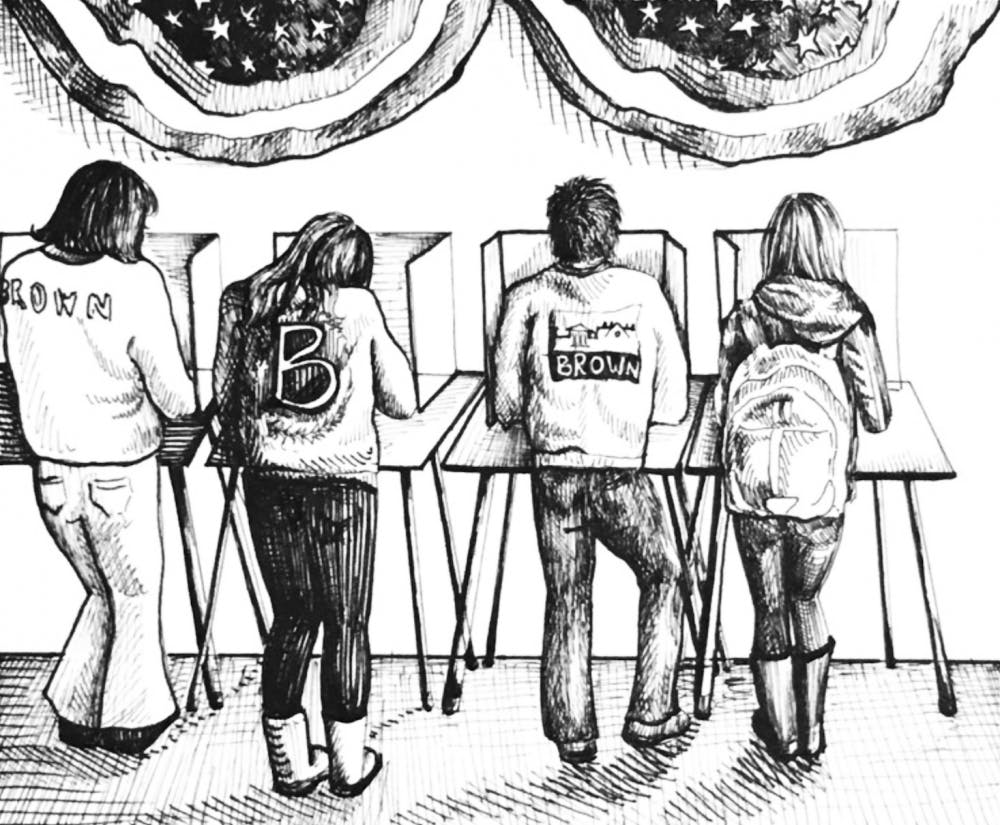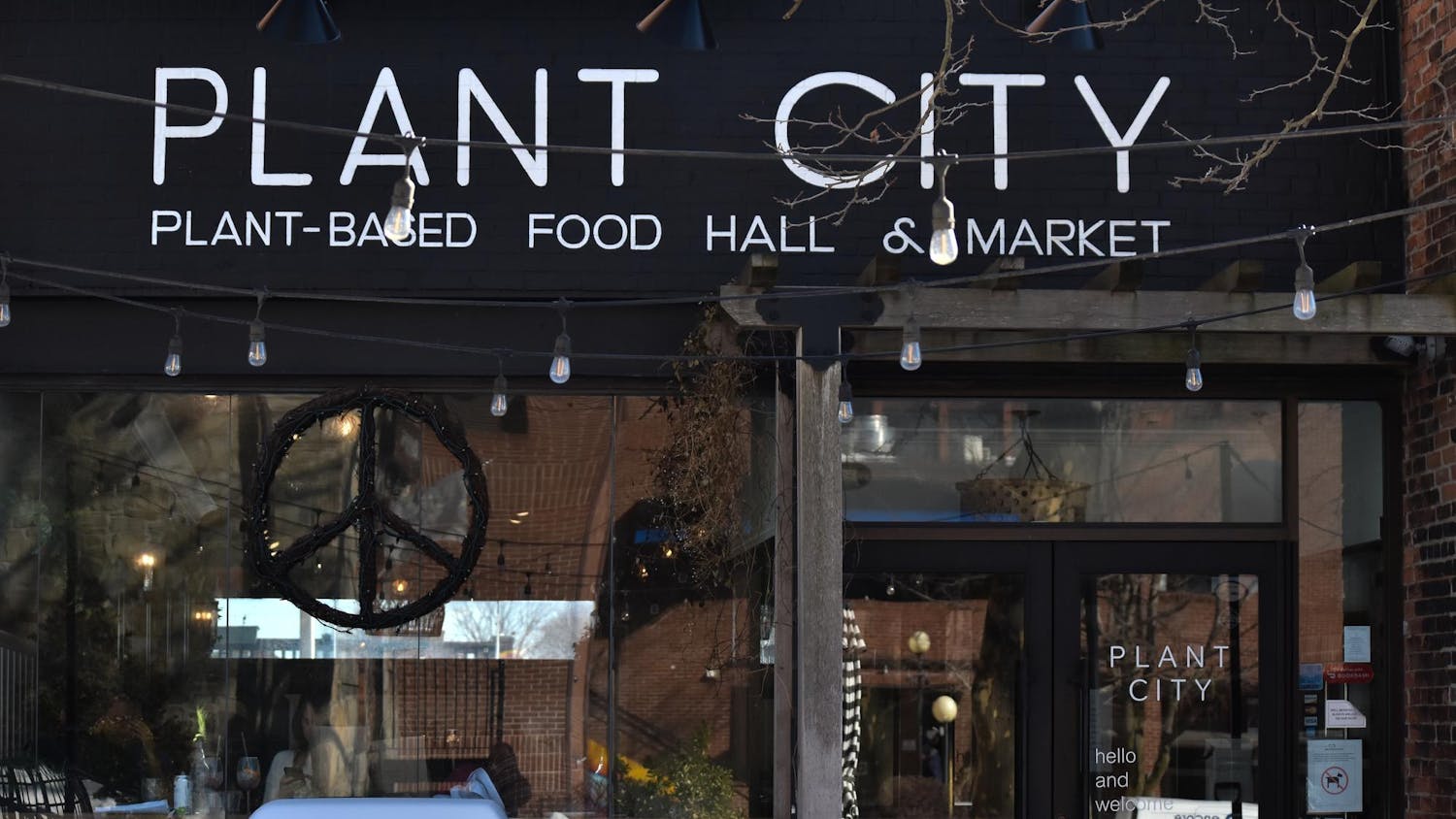As the Nov. 6 election approaches, the Swearer Center for Public Service is working with the Brown College Democrats, the Brown University Republicans and the Brown Progressive Action Committee to mobilize student voting in an attempt to improve the 13 percent student voter turnout of the 2014 midterms.
The Swearer Center’s voter registration drives now use TurboVote, an online service that helps citizens register to vote and sends absentee ballots to their mailboxes. Over 400 students have signed up for TurboVote since Aug. 1, said Director of Student Development at the Swearer Center Betsy Shimberg.
The Swearer Center will also sponsor a workshop Oct. 9 with R.I. Secretary of State Nellie Gorbea, Shimberg said, adding that Gorbea will bring voting machines with mock ballots with her “so students can actually practice filling in the bubbles and putting (the ballots) in the machines,” which “kind of demystifies ‘What is this voting thing?’”
Shimberg also plans to invite elected officials running for office in uncontested races to speak and meet with small groups of students. Her goal, she said, is to get at least 26 percent of students to vote in this midterm election, which would double the 13 percent of students who voted in the 2014 elections.
The University ranks among Washington Monthly’s “America’s Best Colleges for Student Voting,” a list published in Sept. 2018 of 58 schools that includes Tufts, Northwestern and Harvard. Every school featured on the list satisfied four criteria: participation in Tufts University’s National Study of Learning, Voting and Engagement; enrollment in the ALL IN Campus Democracy Challenge; release of NSLVE data and publication of an ALL IN action plan.
The Swearer Center published a draft of its ALL IN Challenge action plan in May, which focuses on registering and mobilizing voters for the midterm elections, integrating voting and civic engagement into student life and educating the Brown community on “liberal democracy and civic engagement.”
Based on the NSLVE data for 2014 and 2016, the Swearer Center decided to devote special attention to graduate students and all students in STEM disciplines, “though our 2014 midterm participation was so poor that any generalized turnout efforts will help improve,” according to the plan.
In 2016, 52 percent of Brown undergraduates voted, while only 39.3 percent of Brown graduate students voted. That same year, 33.2 percent of students studying business voted and 40 percent of students studying engineering voted. Those studying environmental sciences and English literature ranked among the highest, with 65.2 percent and 60.1 percent voting participation, respectively, according to the University’s published NSVLE data set.
“People are registered to vote; that’s not it. It’s that they have to care and feel connected in order to vote,” Shimberg said. “How do we educate people so they feel confident in how they’re voting? That’s really on you as a citizen. That’s your privilege.”
Brianna McFadden ’20, secretary of No Labels at the University, said that students “want to be truly informed” before voting, adding that she has noticed “a slight sense of … apathy. … To me what’s important is civic engagement and making sure people are involved in the political process and feel like they have a space to be involved in the political process.”
Julia Kirschenbaum ’19, chair of BPAC, emphasized the importance of viable candidates who connect with young voters in bolstering civic engagement.
“It can be hard to get out and vote when you feel like you don’t identify with the platforms of any of the candidates represented on the ballot. So I think that goes back to ensuring people are running for office who represent us,” she said.
Kirschenbaum also urged out-of-state students who register to vote in Rhode Island to remember that they are likely “transient members of this community,” adding that “we have to listen to the people who actually live here and have been affected by the policies here for years and years and years.”
Shimberg stressed that students, whether they can vote in Rhode Island or not, can create change in the Providence community.
“Voting is one small part of civic engagement,” Shimberg said, adding that the Swearer Center developed a Beyond the Ballot campaign with Generation Citizen to encourage students to stay involved by calling policymakers, attending political board meetings and engaging in conversations with people with whom they might disagree, among other initiatives.





